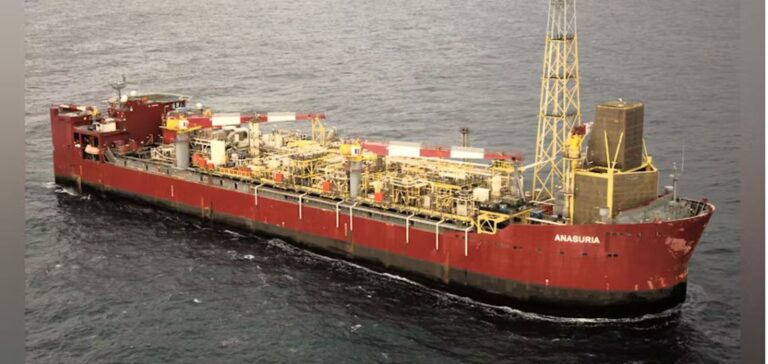The UK government has given the green light to a 10 million barrel North Sea tie-in project, known as Teal West, designed to increase oil flows through the Floating Production Storage and Offloading (FPSO) vessel Anasuria.
Teal West oilfield receives approval despite controversy over industry’s future
The approval, published by the Department for Energy Security & Net Zero, comes amid controversy over the future of the North Sea oil and gas industry, with the opposition Labour Party threatening a moratorium on new licenses. Teal West is expected to add around 6,000 b/d of annual production at its peak, in the best-case scenario, according to the environmental impact study submitted by the project’s developer, Hibiscus Petroleum, based in Malaysia’s capital, Kuala Lumpur.
The Anasuria facility was previously operated by Shell before being taken over by Hibiscus and another Malaysian company, Ping Petroleum, in 2016. The Anasuria cluster produces light crude, with an API gravity of 37-38. Production from the four current fields will amount to 5,600 b/d in 2022, according to data from the regulatory authority. Hibiscus planned to commission the new field in 2024, with production spread over 10 years.
Regulatory delays and uncertainty weigh on the UK oil sector, with the Teal West project in question
However, regulatory delays may have had an impact on this timetable. Hibiscus has not responded to a request for comment. Dated Brent, the North Sea benchmark, was valued by Platts, part of S&P Global Commodity Insights, at $84.18/b on August 2, down $1.10/b on the day.
The UK oil and gas sector is experiencing heightened uncertainty due to net-zero emissions targets and punitive taxation, as well as a sharp drop in production levels. Norwegian state-controlled Equinor’s plans to develop the 325-million-barrel Rosebank oil project in British waters are now being closely monitored and are a bellwether for the sector.





















